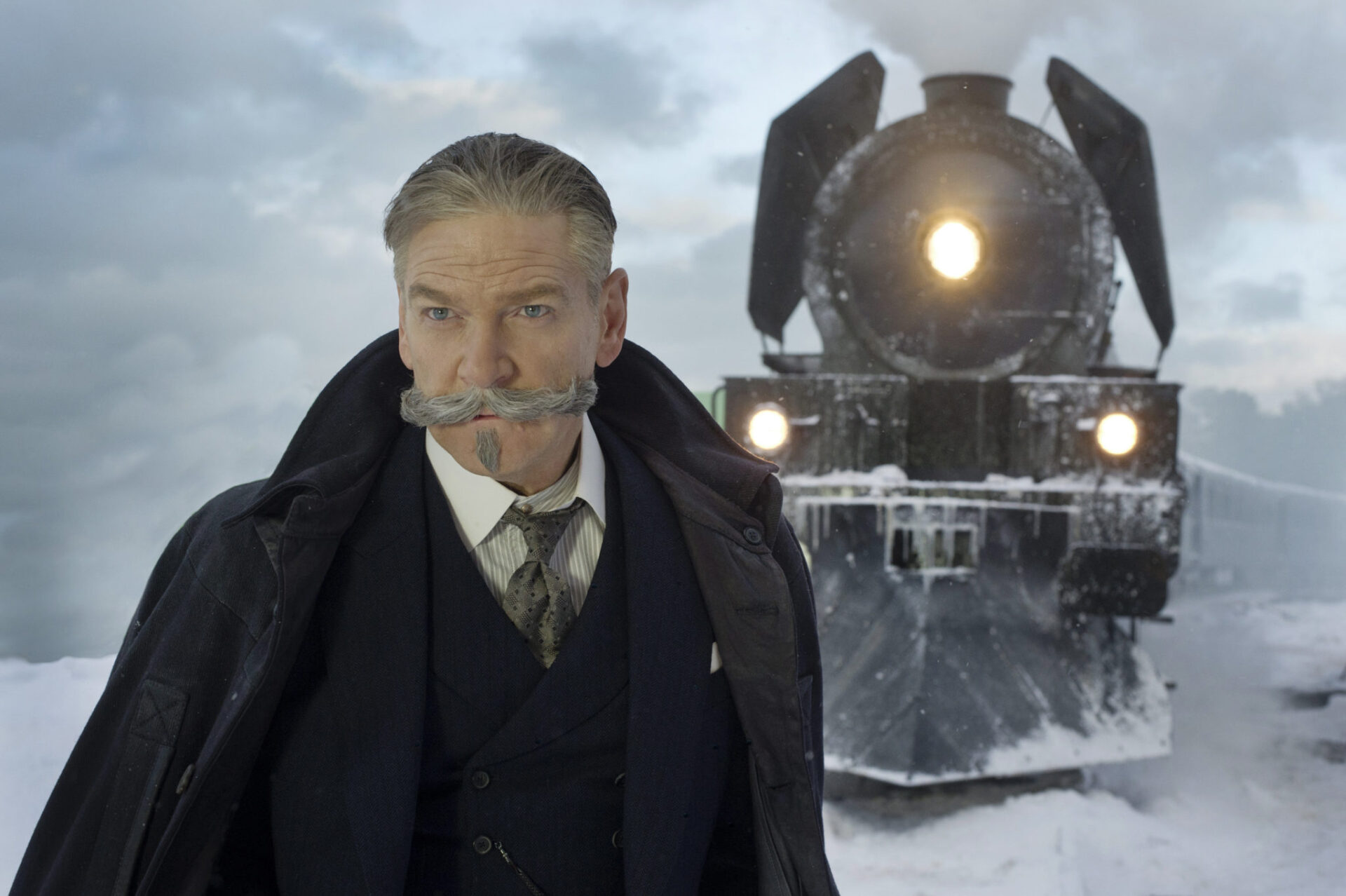Murder on the Orient Express strives to revive one of Agatha Christie’s most famous detectives: the infamous Hercule Poirot. The timing is certainly right for a revival, and Hollywood loves a good reboot. The last movie featuring Poirot was 1985’s Thirteen at Dinner. Even the British TV series, which first aired in 1989, wrapped up in 2013.
Murder on the Orient Express starts off strong. Poirot (Kenneth Branagh) is in Jerusalem on a different case and is seemingly the only person who can determine whether a rabbi, priest, or imam stole a priceless, religious artifact. With a single clue, a scuff on a fresco, Poirot is able to determine the identity of the unexpected culprit. The solution of this mystery is the perfect introduction to the infamous detective’s logic, and his ever-working little grey cells. Always one step ahead, Poirot even knows where to place his cane so that it will trip up the culprit as he tries to escape.
Unfortunately, this Poirot disappears the moment he steps onto the Orient Express. The Poirot on the train is moody, and spends more time talking to a photograph of his long lost love than working through the nuanced clues of the murder. He also gets involved in a high risk chase, gets shot, and pulls a gun on the many suspects. This version of Poirot is both unrecognizable from the one introduced earlier in the movie and from Agatha Christie’s beloved character.
These character changes could be due to an attempt to reach an American audience. This decision can also be seen in the easily recognizable American actors: namely, Michelle Pfieffer, Johnny Depp, Willem Dafoe, and Josh Gad. (Those upset that Johnny Depp continues to be cast in large budget films despite Amber Heard’s allegations of abuse will be happy to hear that he plays the murder victim.) While Kenneth Branagh did an excellent job of directing his fellow actors, he slipped when it came to directing himself as Hercule Poirot.
Although this is far from the first time that Branagh has both directed and acted in a movie, there’s an attention to detail missing in Poirot’s character. His accent slips throughout the movie, and his hair and clothes frequently become disheveled. For a character who measures his hard-boiled eggs to ensure that they are the same size, such sloppiness would be inexcusable. The audience will also probably be distracted by Poirot’s mustache, which takes up more of his face than is necessary. It looks like a different beast from every angle and viewers may find themselves trying to solve the mystery of how it came to be.
If viewers are also trying to solve the mystery of the Murder on the Orient Express, they should be reminded that Agatha Christie’s plots are complicated and convoluted. While the reveal makes sense, it’s not one that audiences are likely to figure out on their own. But in reality, it’s not the complicated storyline that brings down the movie; it’s Poirot himself. And how that happened is not a mystery for the little grey cells.













